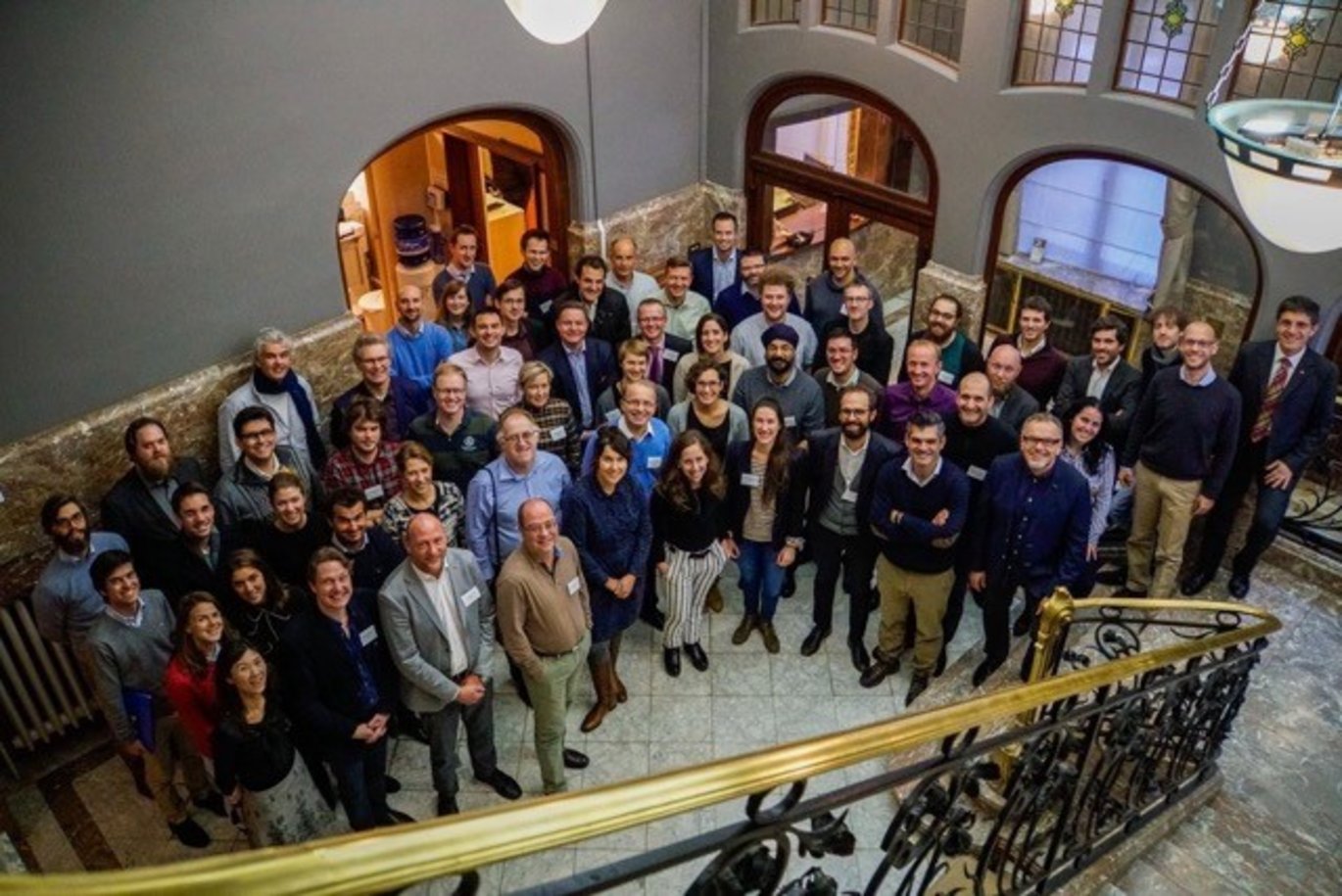Aarhus University to head giant global project on technology in future cities
EU issues major grant to associate professor Martin Brynskov and the beacon project SynchroniCity. This gives Aarhus University a leading role in developing the Internet of Things in cities, and a unique opportunity to work with a global consortium to influence the current process of digitalisation.

In collaboration with eight cities in Europe as well as cities in South Korea, the US, Mexico and Brazil in an international consortium of 34 partners, SynchroniCity will create a global digital market for the Internet of Things (IoT) and Smart Cities, based on common standards and the needs of the citizens and cities involved.
“This research project shows exactly how Aarhus University can develop its expertise in close collaboration with both companies and society as a whole. This kind of teamwork is vital in finding solutions to some of the great global challenges facing society today,” says rector Brian Bech Nielsen.
Digital technologies have a broad impact and create plenty of opportunities in terms of collecting data and increasing automatisation. But they also present a wide range of dilemmas.
“The process of digitalisation is a huge challenge, and technical developments are the least of our problems in most cases. The hard part is to agree and to get the technology to work in practice, on market terms, without creating new social, cultural and ethical problems. The current global political situation clearly reveals that this is the case,” says Martin Brynskov, who is an associate professor at the Department of Digital Design and Information Studies and the coordinator and manager of the project.
Shared digital market without losing sight of human needs
With a view to creating an efficient, shared digital market without losing sight of human needs, companies of all sizes are being invited to take part in the project so new ideas can take root and have a ripple effect across the boundaries between cities and nations.
Martin Brynskov explains: “Cities are catalysts for the extensive process involved in digitalising society as a whole. This is where the complexities of the process are revealed. But we can’t just copy-paste ideas from one city to another. SynchroniCity is part of a much larger global movement, the aim of which is to progress from the experimental stage and, by the power of example, create solutions and standards which suit the real world in a way that works for citizens as well as the public and private sectors. We need to show how local issues can be connected to a global market by keeping our focus on human needs.”
Aarhus University is the leader of the consortium, which also includes the Alexandra Institute (the other Danish partner).
“For more than a decade, Aarhus University and IT City Katrinebjerg have had the ambition of being a global centre for developing the Internet of Things, popularly known as “IT in everything”. There is a large market for smart products and services – but only if we manage to persuade many different stakeholders to work together, and only if we can create shared standards by involving a variety of academic disciplines. Which is something we know all about in Aarhus,” says Ole Lehrmann, director of the Alexandra Institute A/S.
The project is based on the global initiative Open & Agile Smart Cities (OASC), which includes more than 100 cities in 22 countries, and which is chaired by Martin Brynskov. The headquarters of this initiative are in Brussels.
SynchroniCity was launched at the conference entitled Connected Smart Cities in Brussels.
Watch the video from the opening with European commissioner Günther H. Oettinger
Watch the video from the opening with associate professor Martin Brynskov and others
Facts about SynchroniCity
- SynchroniCity is the name of a new EU project (Horizon 2020, LEIT-ICT-IoT).
- The project has a total budget of about DKK 150 million (EUR 20 million). Roughly DKK 120 million (EUR 15 million) of this is from the EU, while the rest comes from companies, cities and partner countries.
- SynchroniCity is part of a larger IoT initiative called the European Large Scale Pilots Programme, which has a total budget of more than DKK 750 million.
- A total of 34 partners are associated with the project, including companies, cities and universities.
- The main cities involved in the project are: Eindhoven, Helsinki, Antwerp, Manchester, Porto, Santander, Milan and Carouge (Geneva), as well as Léon (Mexico), Seongnam (South Korea), Portland (USA) and a number of Brazilian cities.
- Read more about the global initiative Open & Agile Smart Cities (OASC).
Further information
 |
Associate professor and coordinator of SynchroniCity
|
|---|
Photo: Kristian Granquist
